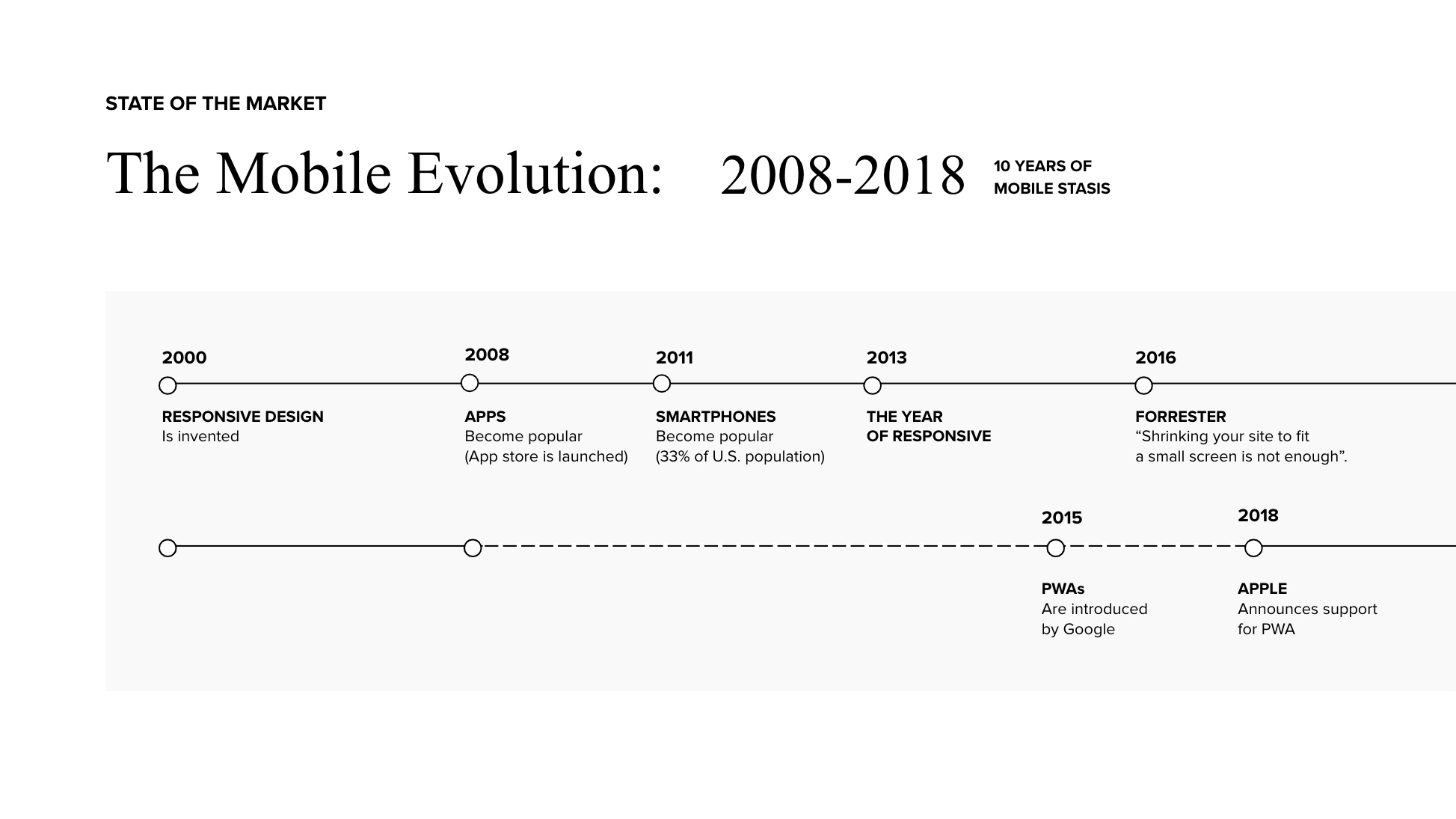Why Corra is Investing in the Future of Mcommerce
4 Min Read
The future of mcommerce (mobile commerce) is here.
For the past 10 years there has been virtually no evolution in mobile user experience – despite the fact that in 2020, smartphones are practically glued to the palms of our hands.
Responsive design that adapts to fit a mobile or desktop screen was introduced in the early 2000s and the app store was launched in 2008. But until recently, those were the only two major innovations.


To quote Forrester, shrinking your site to fit a small screen is not enough. It’s not enough because consumers behave differently on mobile and we need a solution that accommodates these behaviors (i.e. Google data shows we’re far less likely to wait for a site to load on mobile so the experience needs to be lightning-fast).
What’s wrong with traditional apps? Well, in the context of ecommerce, as a consumer, chances are I don’t want to download an app for every store I shop with. Not only will that over clutter my device, but if I’m in the midst of browsing for a coffee table, for example, I would have to interrupt that experience to be redirected to the app store, enter my apple ID/password, and wait for the app to download. These steps amount to a significant barrier to entry.
Additionally, a study by Google found that 80% of app users churn within 3 months of downloading the app. Which is bad news for ecommerce brands with apps because they are painfully expensive and time-consuming to build for both iOS and Android.
But here’s the real problem: both mobile experiences (traditional apps and responsive design) fail to solve one major pain point that most ecommerce brands have in common. We call this the “Mobile Conversion Gap.”
The mobile conversion gap is essentially when an ecommerce site has high mobile traffic but a low mobile conversion rate. Consumers are visiting the site on mobile, yet they aren’t converting.


Industry averages suggest that AOV (average order value) on desktop is 50% higher than mobile and nearly 80% of items in mobile carts are abandoned.
Around 62% of online traffic comes from smartphones, but mobile only accounts for 23% of conversions. That’s a 39% conversion gap. It’s not just loose change falling through the cracks – it’s serious revenue left on the table.
Brands and retailers that fail to close this gap in years to come will be at a dangerous disadvantage. That is why Corra has dedicated our time and resources to developing a solution to this problem on behalf of our clients. That solution is undeniably PWA (Progressive Web Apps), the future of mcommerce.
What are PWAS? PWAs combine the discoverability of the web with the mobile-friendly capabilities of an app. They are searchable via Google like any other website so consumers don’t need to interrupt their shopping experience with a detour to the app store. And because PWAs pre-cache parts of the site, the result is a lightning-fast experience translating to engaged visitors, increased conversions, and better SEO rankings. The more a consumer engages with them, the faster the experience becomes.
Here are a few high-level benefits of PWA:
- Nearly instant load times
- Browse offline or with minimal bandwidth
- App-like experience with excellent UX
- Push notifications
- Discoverable via search – high organic SEO equity
- Omni-device compatibility
- Homescreen icon
- Device capabilities (camera, barcode readers, location, gyroscope, etc.)
- Voice and image search
Learn more about PWAs in this video: Progressive Web Apps Explained in 3 Minutes. It explains why Corra believes PWA is the future of mcommerce.
Innovation can be scary. Especially for the ecommerce brands that don’t have the massive budgets that allow them to comfortably take risks.
So Corra developed a proprietary library of pre-built features and functionalities. The solution includes everything merchants need to be able to kickstart their PWA implementation, including state-of-the-art page templates, a UI toolkit, a streamlined checkout experience with mobile-friendly payment methods, and much more. By utilizing these plug-and-play features, you’re able to go to market faster, cut costs, and scale the productivity of your content team.
Corra has 7+ PWA projects going in the coming months. We recently launched Elemis, which you can read about here.
“
Mobile Apps will slip to a niche role as PWAs combine the discoverability of the web with the experience of an app.
Forrester
PWA technology will eventually take over traditional apps as we know them. The future of mcommerce is here and Corra is leading the way.
If you would like to learn more about Progressive Web Apps, reach out to Corra via our contact page. Our experts are more than happy to answer any questions you may have. Or you can continue your PWA education by watching our video 3 Myths About Progressive Web Apps, Debunked.

